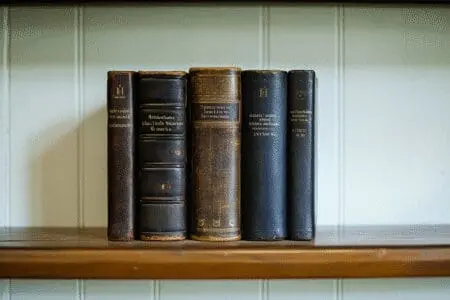That big book on the shelf can feel like a mountain, can’t it? It has thousands of pages. The text is often small. And you’ve heard it’s one of the most important books ever written. The pressure to just get it “right” can be immense. So, you might be asking, where is a good place to start reading the Bible? The answer might surprise you. It is not page one.
Starting the Bible can feel like visiting a new country without a map. You know there are amazing things to see. But you have no idea which road to take. Many people think the right way is to open to Genesis 1:1 and just start plowing through. That path often leads to getting bogged down in laws and genealogies by the time you hit Leviticus.
The truth is, the Bible is not one book. It is a library. It contains 66 different books written by many authors over centuries. They include history, poetry, letters, and prophecy. You wouldn’t walk into a library and read the first book on the first shelf to understand the whole collection. You’d start with something that grabs your interest. The Bible is no different.
More in Bible Category
How to Cite the Bible Chicago Style
Key Takeaways
- Don’t Start at the Beginning: The Bible is a library, not a novel. Starting with Genesis and reading straight through is a common way people get discouraged.
- Begin with the Gospels: The best starting point is the story of Jesus. The book of John is perfect for understanding who Jesus is. The book of Mark is a great, fast-paced alternative.
- Find an Easy-to-Read Translation: You don’t need to read the King’s English. The New Living Translation (NLT) or New International Version (NIV) are modern, clear, and easy to understand.
- Context is Everything: Before you read a book, get a little background. A quick search about who wrote it and why can make a huge difference in your understanding.
- Pray Before You Read: The simplest step is often the most powerful. Ask God to speak to you through the words you are about to read. It changes everything.
Why Shouldn’t I Just Start at Genesis 1:1?
It seems logical, right? Start at the beginning. But as I said, this approach is a trap for many new readers. Think of it like this. You want to get to know a famous person. Would you start by reading their great-great-grandfather’s birth certificate? Or would you start with a biography that tells you who they are and why they are important?
Starting in Genesis is a bit like the first option. It’s foundational, absolutely. But it is not the heart of the story that the rest of the Bible is pointing to. The Old Testament is constantly looking forward to someone. The New Testament is all about that someone: Jesus Christ.
If you start in Genesis, you will read amazing stories. Creation. Noah’s Ark. Abraham and Moses. These are vital. But then you will arrive at books like Leviticus and Numbers. These books are filled with laws, regulations for priests, and census data. While incredibly important for understanding the history of Israel, they can feel like hitting a brick wall for a modern reader. Your momentum can vanish. I’ve seen it happen time and time again.
So, Where Is the Absolute Best Place to Begin?
The goal is to meet the central figure of the entire Bible. That person is Jesus. Everything in the Old Testament points toward Him. Everything in the New Testament flows from Him. So, the best place to start is with His life story. We have four accounts of His life, known as the Gospels: Matthew, Mark, Luke, and John. Two of these are perfect for beginners.
The Gospel of John: Meeting Jesus Personally
If you only pick one book to start with, make it John. This book was written with a specific purpose. The author says it himself near the end: “These are written so that you may believe that Jesus is the Christ, the Son of God.” It’s a book designed to introduce you to Jesus and invite you into a relationship with Him.
John is not just a list of events. It is a deeply personal and reflective account. You will find Jesus describing Himself with powerful “I am” statements:
- “I am the bread of life.”
- “I am the light of the world.”
- “I am the way, the truth, and the life.”
Reading John feels less like reading a history book and more like listening in on a conversation. It gives you the heart of who Jesus is. It’s a fantastic foundation for everything else you will read.
The Gospel of Mark: A Fast-Paced Action Story
Maybe you are not the philosophical type. Maybe you just want to know what Jesus did. If that’s you, then start with the Gospel of Mark. It’s the shortest of the four Gospels. You can easily read it in one sitting.
Mark doesn’t waste any time. It jumps right into the action. The word “immediately” is used over 40 times. The pacing is quick. It reads like a modern action movie. It shows you a powerful and authoritative Jesus who is constantly on the move, healing people, teaching crowds, and challenging the religious leaders.
If you want a quick “win” to build your confidence, Mark is the perfect choice. It gives you the highlight reel of Jesus’s life and ministry. It leaves you with a clear picture of His power and purpose.
What If I Want to Understand the Big Picture of the Bible?
After reading a Gospel, you might start getting curious. You’ve met Jesus. Now you want to know what it all means. How does His life change things? This is a great next step. You’re moving from the “who” to the “so what?” There are a couple of excellent books that help you zoom out and see the grand story.
Try the Book of Romans: The Core of Christian Belief
The book of Romans is a letter written by the Apostle Paul. It is probably the most complete and logical explanation of the Christian faith in the entire Bible. Paul carefully lays out the core doctrines of Christianity. He answers the big questions:
- Why does humanity need a savior?
- What is sin?
- How does faith in Jesus fix our broken relationship with God?
- What does it look like to live a life transformed by God’s grace?
Romans can be a little dense. I won’t lie. But it is so worth it. It’s like the instruction manual that explains how the whole machine works. It takes the story of Jesus you read in the Gospels and explains its cosmic significance. If John is the heart of the Bible, Romans is the brain.
Or Consider the Book of Genesis: The Very Beginning
Now we can circle back to Genesis. Once you understand who Jesus is and what He came to do, reading Genesis becomes a whole new experience. You will see it not just as ancient history, but as the setup for the story of redemption.
Genesis introduces you to the foundational themes of the Bible. You see God as the powerful Creator. You witness the tragedy of humanity’s fall into sin. And you watch God make a promise, a covenant, with a man named Abraham. This promise is the thread that pulls you through the rest of the Old Testament. It’s the promise that God will one day rescue His people. Knowing from the Gospels who that rescuer is makes reading Genesis incredibly rich.
Are There Any Good Places to Start in the Old Testament?
The Old Testament makes up about two-thirds of the Bible. It can be intimidating. But it is filled with so much beauty, wisdom, and drama. You shouldn’t ignore it. Fortunately, there are a few books that are very accessible and deeply rewarding for new readers. You don’t have to read them from start to finish. You can just dive in.
The Book of Psalms: The Prayer Book of the Bible
The book of Psalms is a collection of 150 songs and prayers. It’s one of the most beloved books in the whole Bible for a reason. It contains the full spectrum of human emotion, all directed toward God.
- Are you feeling joyful and full of praise? There’s a Psalm for that.
- Are you feeling abandoned, angry, or confused? There’s a Psalm for that, too.
- Are you in need of guidance or protection? It’s in the Psalms.
The Psalms teach us how to be honest with God. They give us the words to pray when we don’t know what to say. You can open to almost any Psalm and find something that resonates with your soul. It’s not a book to read in order. It’s a book to live in.
The Book of Proverbs: Timeless Wisdom for Daily Life
If the Psalms teach you how to talk to God, Proverbs teaches you how to live in the world. It is a collection of wise sayings, mostly from King Solomon. It offers practical, godly advice on all sorts of everyday topics.
- Friendships
- Money
- Work ethic
- Marriage
- The danger of gossip
The advice is short, memorable, and incredibly practical. It is as relevant today as it was thousands of years ago. There are 31 chapters in Proverbs, which makes it perfect for a daily reading habit. You can read the chapter that corresponds to the day of the month. It’s a simple way to inject a dose of divine wisdom into your life every single day.
How Do I Actually Make Reading the Bible a Habit?
Knowing where to start is the first step. But the real challenge is keeping it going. Turning this into a consistent part of your life is where the real transformation happens. It’s not about finding a huge chunk of time. It’s about creating a small, sustainable habit.
What is a Good Bible Reading Plan to Follow?
A reading plan is your best friend. It eliminates the single biggest obstacle to daily reading: deciding what to read. Waking up and having a plan already laid out for you makes all the difference.
There are tons of great, free reading plans available. You can find them on websites or on Bible apps like YouVersion. There are plans for everything:
- Book-by-book plans: These walk you through a specific book of the Bible, a little bit each day.
- Thematic plans: These group together verses from all over the Bible about a certain topic, like hope or anxiety.
- Chronological plans: These rearrange the Bible into the order the events actually happened.
Don’t get overwhelmed by the options. Just pick one that looks interesting and give it a try. You can always switch if it’s not working for you. The goal is just to get into the rhythm of opening the book every day.
Should I Use a Special Bible for Beginners?
The Bible you use can make a big difference. If you try to start with a version from 400 years ago, like the King James Version (KJV), you might struggle with the old English language. That’s perfectly okay.
I highly recommend starting with a modern, easy-to-read translation. The New Living Translation (NLT) reads like a modern novel. It’s very clear and conversational. The New International Version (NIV) is another fantastic choice. It balances readability with accuracy.
You might also consider getting a Study Bible. A good Study Bible in the NLT or NIV translation will have notes at the bottom of the page. These notes explain confusing verses, provide historical context, and help you understand the main points of a passage. It’s like having a helpful guide sitting next to you as you read.
How Can I Understand What I’m Actually Reading?
Reading the words is one thing. Understanding them and letting them sink into your heart is another. It helps to have a simple method to engage with the text. One of the most popular is the S.O.A.P. method. It’s simple and memorable.
- S – Scripture: Pick a short passage and write it down. The act of writing helps you slow down and notice things you might have missed.
- O – Observation: What does this passage say? Look for facts. Who is speaking? What is happening? Don’t interpret yet, just observe.
- A – Application: What does this mean for me, today? How can this truth change the way I think, act, or live? Make it personal.
- P – Prayer: Talk to God about what you just read. Thank Him for it. Ask Him to help you apply it to your life.
This simple practice can turn a passive reading session into an active conversation with God. For a deeper academic perspective on the books of the Bible, resources from institutions like Harvard Divinity School can offer a rich historical context.
What Are Some Common Mistakes to Avoid When Starting?
As you begin this journey, it helps to be aware of a few common pitfalls. Knowing them ahead of time can help you navigate around them when they appear.
Trying to Read Too Much at Once
This is a classic mistake. You get excited and decide you’re going to read five chapters a day. This might work for a week or two. But it’s not sustainable. It’s much better to read one chapter, or even just a few verses, and really think about them. The goal is not to get through the Bible. The goal is to get the Bible through to you. Start small. Five or ten minutes a day is a fantastic start.
Getting Discouraged and Giving Up
You will miss a day. It’s going to happen. Life gets busy. You’ll forget. Do not let this derail you. The enemy wants you to feel guilty and give up entirely. Don’t fall for it. This journey is about grace, not perfection. If you miss a day, or even a week, just pick it back up. God’s Word will be waiting for you.
Reading Without Praying First
This might be the most important point of all. The Bible is not like any other book. Christians believe it is the living Word of God. The Holy Spirit is the one who illuminates the text and helps us understand it.
Before you open the book, take thirty seconds to pray a simple prayer. Something like, “Lord, thank you for your Word. Please open my eyes, my mind, and my heart. Show me what you want me to see today. In Jesus’ name, Amen.” That simple act of invitation changes the entire experience. It shifts it from a duty you have to perform into a conversation you get to have with the God who loves you.
Your Adventure Awaits
The best place to start reading the Bible is the place that gets you to actually start. Don’t overthink it. Pick the Gospel of John or Mark. Find an easy-to-read translation. And commit to just five minutes a day.
Don’t see it as a mountain to be conquered. See it as a conversation to be had. It’s an invitation from the Creator of the universe to get to know Him better. He wants to speak to you through these ancient, powerful, and life-changing pages.
Just open the book and listen.
Frequently Asked Questions – Where Is a Good Place to Start Reading the Bible

What is the most important advice for someone starting to read the Bible?
The most important advice is simply to start. Read one chapter, no matter how small, and focus on getting to know God and His love. Consistency and curiosity matter more than perfection in your journey.
What tools and resources can assist me in my Bible reading journey?
Using a modern and understandable Bible version like NIV or NLT, utilizing Bible apps such as YouVersion, and watching animated videos from The Bible Project can make reading more accessible and engaging for beginners.
How can I find a helpful place to begin reading the Bible that fits my current life situation?
If you seek comfort, read Psalms; for practical advice, Proverbs; and for understanding God’s plan for salvation, the story arcs in Genesis to Revelation. Choose a starting point that addresses your immediate emotional or life needs.
Why is starting with the Gospels, especially Mark and John, recommended for new Bible readers?
Starting with the Gospels of Mark and John helps new readers understand who Jesus is and what He did. Mark offers an exciting, action-oriented summary of Jesus’s life, while John provides deeper spiritual insights, creating a well-rounded understanding.
What is the best way for a beginner to start reading the Bible?
For beginners, the best approach is to start with the Gospel of Mark because it is short, fast-paced, and highlights the actions of Jesus, providing a clear and engaging introduction to His life and teachings.




